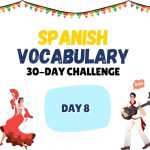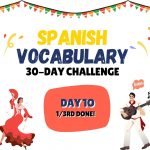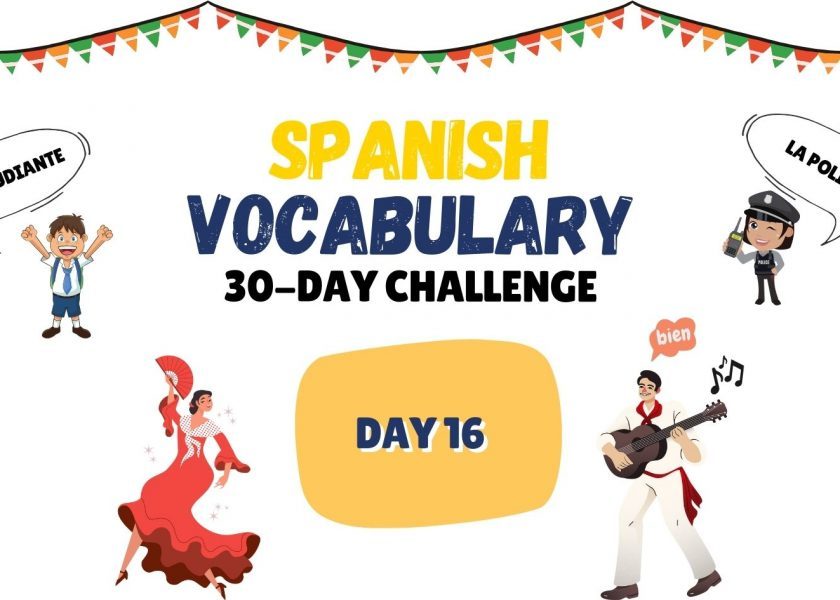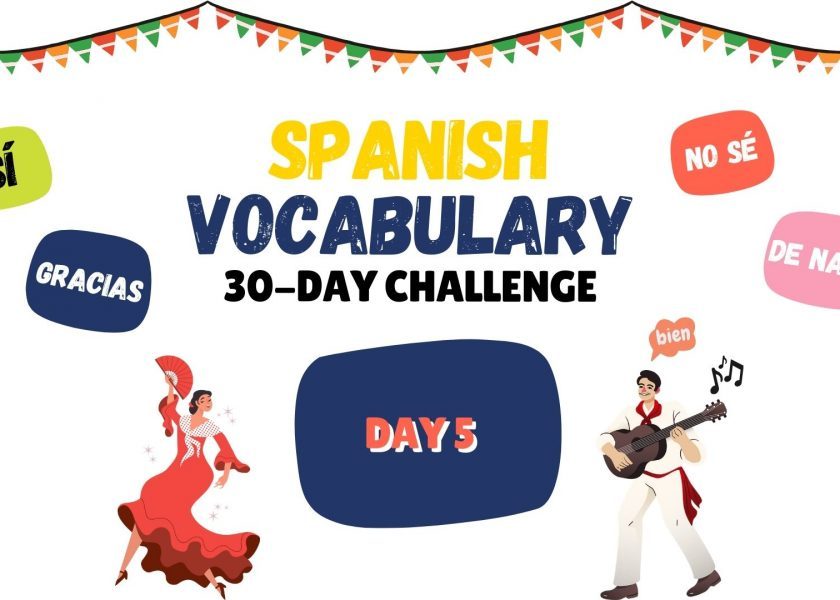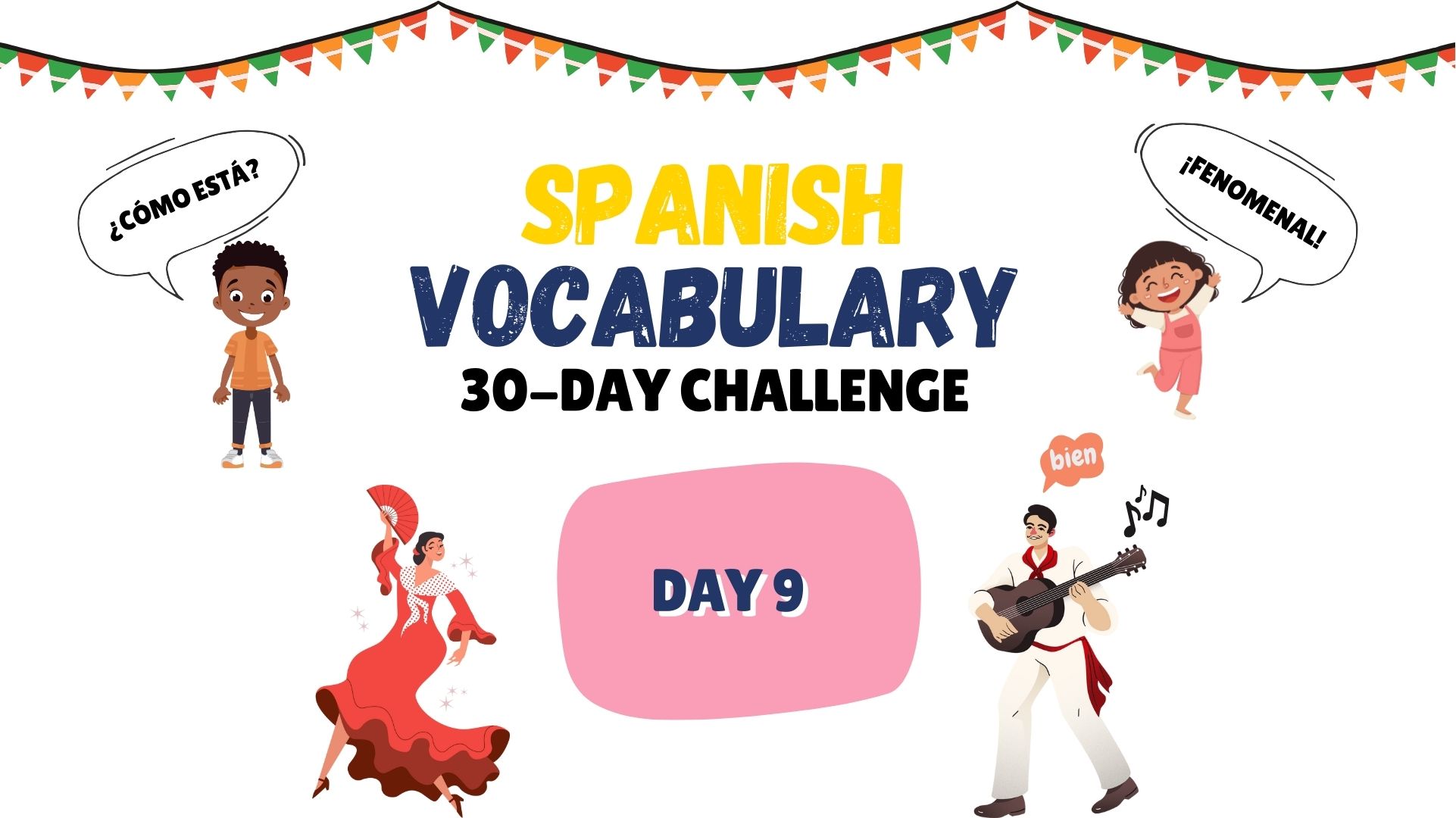
Day 9: Día 9: Learning Spanish Vocabulary to answer ‘How are you?’!
After learning how to ask people “¿Cómo estás?”, the next step is being able to properly respond. Having options to respond naturally will make your Spanish conversations flow like a native speaker’s.
Ready to dive into the rich vocabulary for answering “¿Cómo estás?”?
| Yo estoy muy bien. yo eys-toy moo-ey bee-yen (‘t’ has a soft sound) | I’m very good / very well. |
| Yo estoy muy bien, gracias. ¿Y tú? yo eys-toy moo-ey bee-yen, graa-see-aas. Ee too? (‘t’ has a soft sound) | I’m very good / well, thanks, and you? |
| Yo estoy bien. yo eys-toy bee-yen (‘t’ has a soft sound) | I’m good / I’m well / I’m fine. |
| Bien. bee-yen | Fine / Well / Good. |
| ¡Fenomenal! fey-no-mey-naal | Great! |
| Así, así. aasee aasee | So-so. |
| Mal. maal | Bad. |
| Muy mal. moo-ey maal | Very bad. |
| No tan bien. no taan bee-yen (‘t’ has a soft sound) | Not so good / Not so well. |
| Fatal. faa-taal (‘t’ has a soft sound) | Awful |
Notes to remember:
- Now, this one’s important to remember. Sometimes, to respond, you may say –
Yo estoy bien.
I’m good / I’m well / I’m fine.
Or
Estoy bien.
I’m good / I’m well / I’m fine.
Or
Bien.
Good / Well / Fine.
All three of these are correct. One reason is that sometimes, you may decide to say the complete phrase ‘I am good’ or just say ‘Good’.
Another reason is that in Spanish, the use of the subjects (I, you, he, she, etc) is often optional. Since here ‘Yo’ is the subject, you can say the complete sentence Yo estoy bien or just estoy bien – both will be correct usages. You can use “Yo estoy” or “estoy” with all these words given above.
Now, how about we take a little quiz to see how well we can remember these words? Spend some time on the list again and then attempt this quiz!
How are the following people doing?
a) 
b) 
c) 
d) 
Make sure you only use the vocabulary you’re taught in this lesson!
Now, check your answers!
a) Yo estoy bien / Estoy bien / Bien
b) Yo estoy muy bien / Estoy muy bien / Muy bien / Yo estoy fenomenal / Estoy fenomenal / Fenomenal
c) Yo estoy muy mal / Estoy muy mal / Muy mal / Yo no estoy tan bien / No estoy tan bien / No tan bien
d) Yo estoy fatal / Estoy fatal / Fatal
There are many more ways to describe how you’re doing. But, at the moment, these phrases are enough to get you started. Remember, the list of words and phrases in a new language will be endless. The key is to memorize in manageable chunks (like you are with this challenge) and increase your vocabulary steadily. Don’t get caught up in the rabbit hole of trying to learn everything at once!
So, great job! Day 9 seems like an absolute success, doesn’t it? With these common response phrases, you can politely share how you’re feeling. So, tell me, ¿Cómo está?

